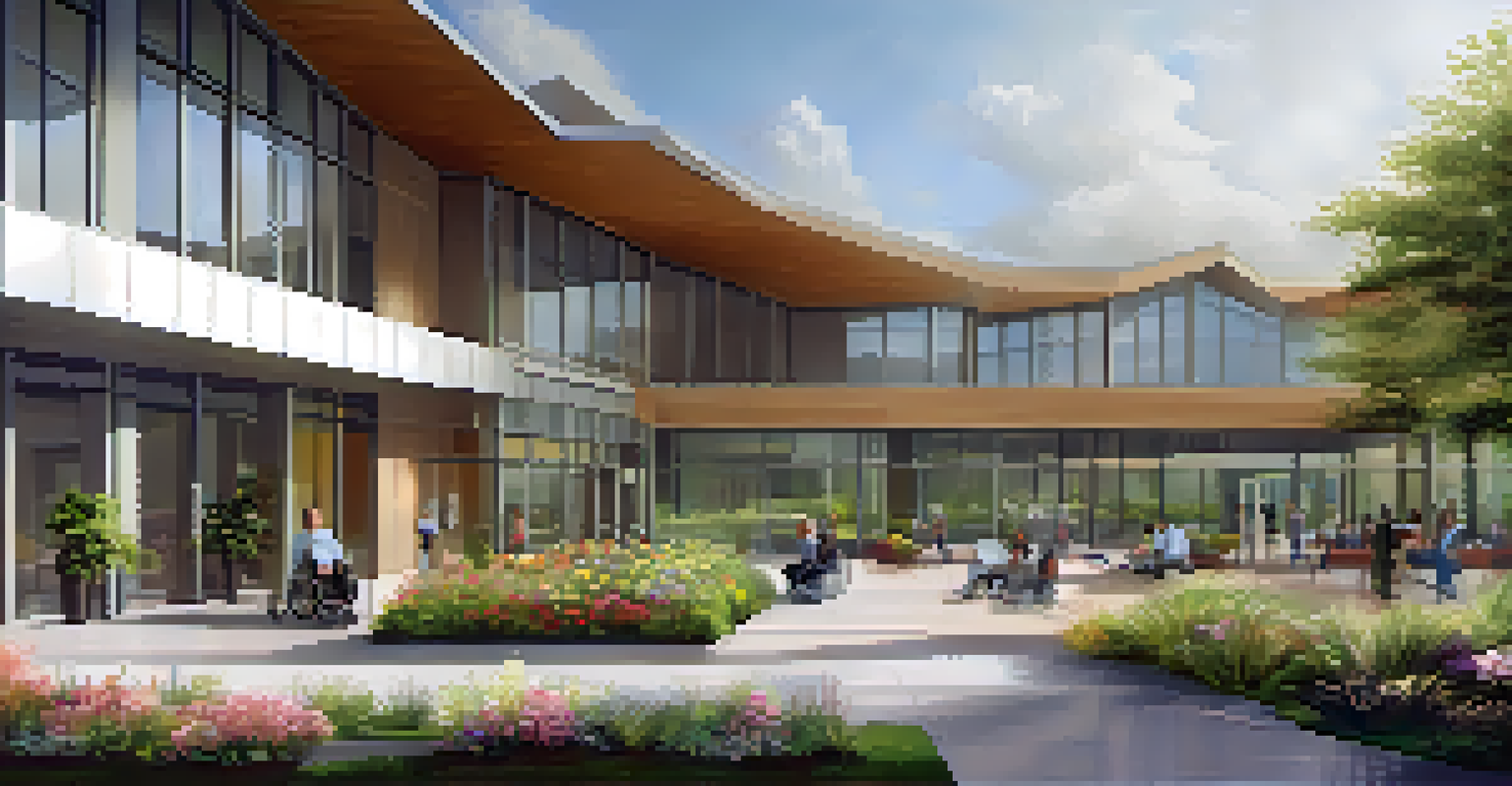Disability and Healthcare Access: Navigating the Challenges

Understanding Disability and Its Impact on Healthcare Access
Disability can take many forms, from physical impairments to mental health challenges. Each type affects how individuals access healthcare services. For example, someone with mobility issues may struggle to navigate a hospital, while someone with a cognitive disability may find it hard to communicate their needs effectively.
Disability is not a limitation; it's a part of who we are.
The impact of these challenges is profound, often leading to disparities in health outcomes. Many people with disabilities face barriers that prevent them from receiving timely and adequate care. This not only affects their physical well-being but can also take a toll on their mental health.
Understanding these challenges is the first step toward creating a more inclusive healthcare system. By recognizing the unique needs of individuals with disabilities, we can begin to address the gaps and work toward equitable access for all.
Common Barriers to Healthcare for Individuals with Disabilities
Barriers to healthcare can be physical, financial, or systemic. For instance, inaccessible facilities can make it nearly impossible for someone in a wheelchair to attend an appointment. Similarly, high costs or lack of insurance coverage can deter individuals from seeking necessary care.

Additionally, systemic issues like long wait times and inadequate training for healthcare providers can exacerbate these barriers. If a healthcare professional is not familiar with a specific disability, it can lead to miscommunication and misdiagnosis. This creates a cycle of frustration and mistrust in the healthcare system.
Barriers Limit Healthcare Access
Individuals with disabilities face numerous challenges, including physical, financial, and systemic barriers that hinder their ability to receive timely and adequate healthcare.
Recognizing these barriers is crucial for advocacy and reform. By bringing attention to these issues, we can push for changes that make healthcare more accessible and responsive to the needs of everyone.
The Role of Policy in Enhancing Healthcare Access
Policies play a significant role in shaping healthcare access for individuals with disabilities. Laws like the Americans with Disabilities Act (ADA) have set important standards for accessibility in public spaces. However, ongoing advocacy is needed to ensure these laws are enforced and expanded.
The greatest disability is not having a disability; it is the inability to see beyond it.
Furthermore, healthcare policies should also address the specific needs of disabled individuals. This includes funding for specialized services and training for healthcare providers. When policies are inclusive, they pave the way for better health outcomes and improved quality of life.
Engaging with policymakers and advocating for change can help create a more equitable healthcare landscape. Through collective action, we can influence the policies that impact the lives of those with disabilities.
Personal Experiences: Voices from the Disability Community
Hearing directly from individuals with disabilities can shed light on the real challenges they face in accessing healthcare. Many share stories of frustration during hospital visits, from navigating inaccessible entrances to feeling overlooked by medical staff. These personal experiences highlight the urgent need for change.
For example, one individual might recount a time they were unable to get necessary treatments because facilities were not equipped for their needs. Another may discuss the emotional toll of feeling dismissed by healthcare providers. These narratives not only raise awareness but also humanize the statistics.
Advocacy Drives Policy Change
Ongoing advocacy is essential to enforce existing laws and push for new policies that ensure equitable access to healthcare for individuals with disabilities.
By amplifying these voices, we can foster empathy and understanding within the broader community. Personal stories remind us that behind every statistic is a person deserving of care and respect.
Innovative Solutions for Improving Access to Healthcare
Innovation can play a pivotal role in enhancing healthcare access for individuals with disabilities. Telehealth services, for instance, have emerged as a valuable alternative, allowing patients to consult with healthcare providers from the comfort of their homes. This can be especially beneficial for those with mobility challenges.
Another example is the development of assistive technologies that facilitate communication between patients and providers. These tools can help bridge gaps in understanding and ensure that individuals receive the care they need. As technology continues to evolve, so too do the possibilities for improving access.
Ultimately, embracing innovation not only addresses current challenges but also anticipates future needs. By investing in creative solutions, we can build a healthcare system that is inclusive and accessible to all.
The Importance of Advocacy and Community Support
Advocacy is essential in the fight for better healthcare access for individuals with disabilities. Grassroots organizations and community groups often lead the charge, raising awareness and pushing for policy changes. These efforts can make a significant difference in the lives of many.
Community support also plays a vital role in this journey. By coming together, individuals can share resources, experiences, and solutions that can help navigate the healthcare system. This sense of community fosters resilience and empowers individuals to advocate for themselves.
Innovation Enhances Healthcare Access
Innovative solutions, such as telehealth and assistive technologies, are crucial for improving healthcare access and meeting the unique needs of individuals with disabilities.
Joining forces with others can amplify voices and create a more significant impact. Together, we can work toward a future where healthcare is accessible to everyone, regardless of their abilities.
Looking Ahead: The Future of Disability and Healthcare Access
The future of healthcare access for individuals with disabilities is filled with potential for positive change. With ongoing advocacy, innovation, and a commitment to inclusivity, we can envision a system that truly meets the needs of all individuals. Collaboration between healthcare providers, policymakers, and the community will be key.
As we look ahead, it’s crucial to remain vigilant and proactive. Continued conversations about accessibility and inclusion will help ensure that the rights of individuals with disabilities are upheld. This ongoing dialogue can lead to tangible improvements in healthcare delivery and outcomes.

Ultimately, the goal is to create a healthcare landscape that not only acknowledges but celebrates diversity. By embracing this vision, we can foster a healthcare system that is equitable, compassionate, and accessible to everyone.